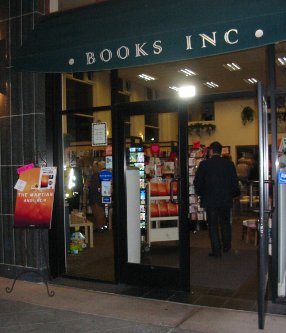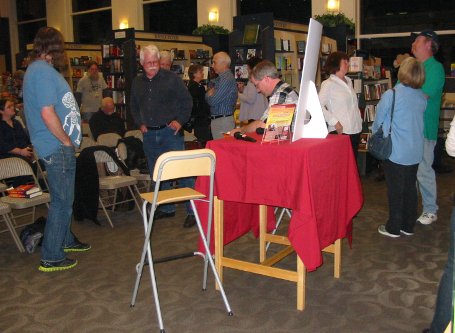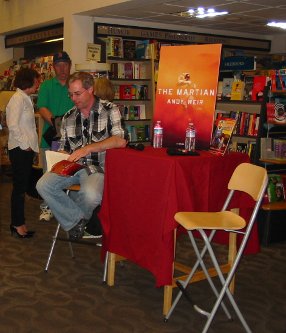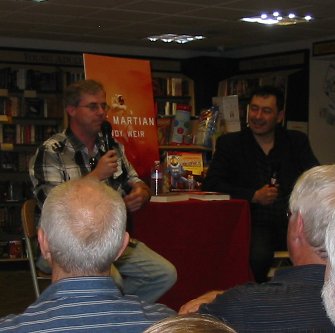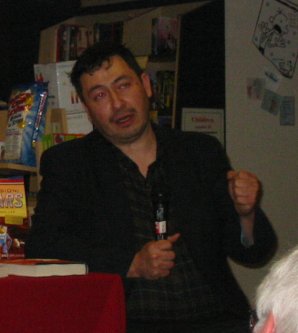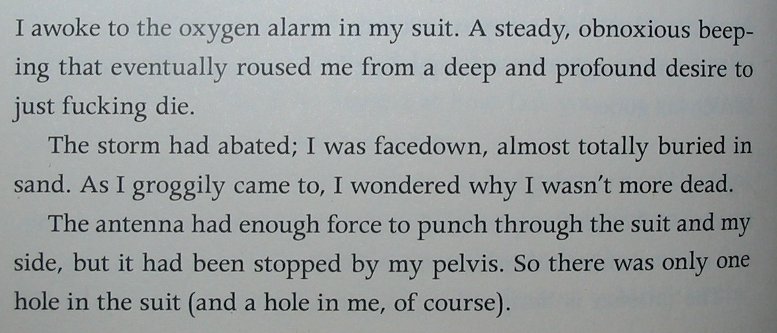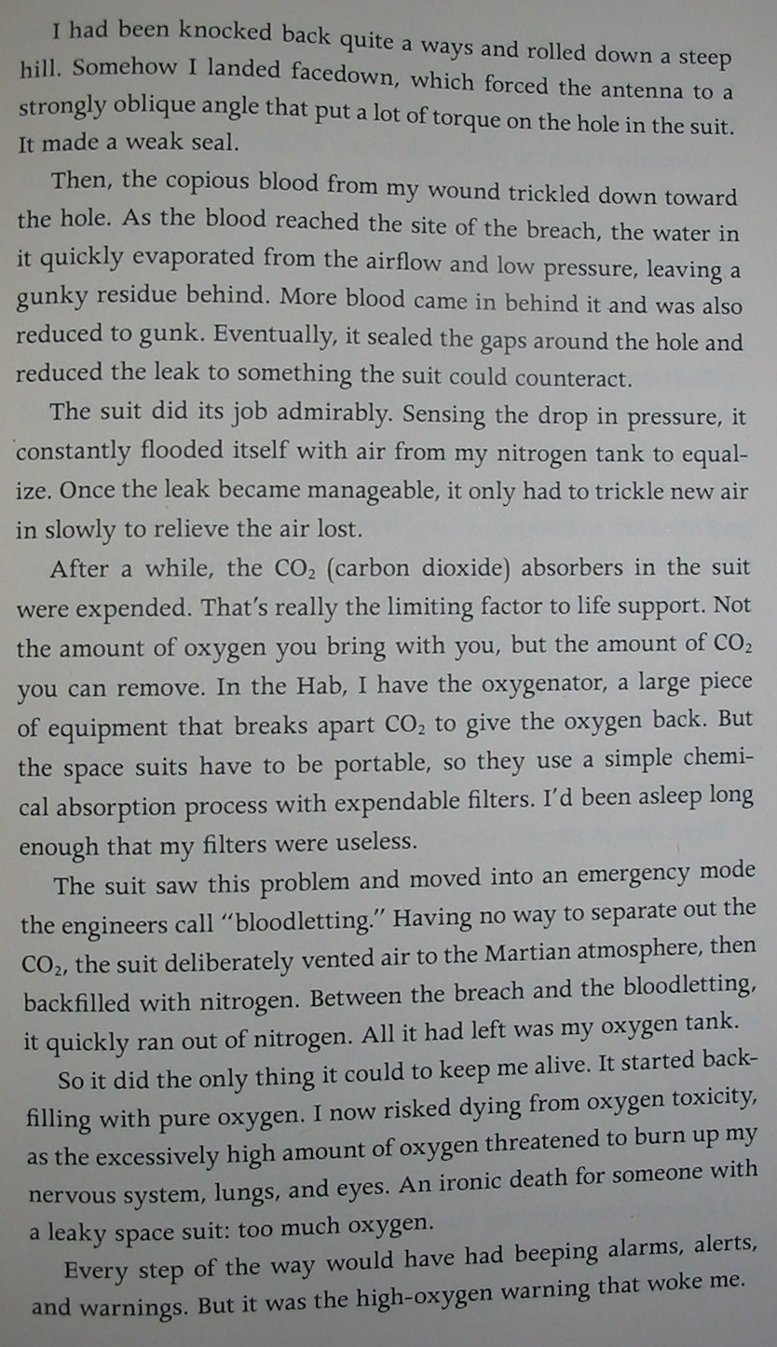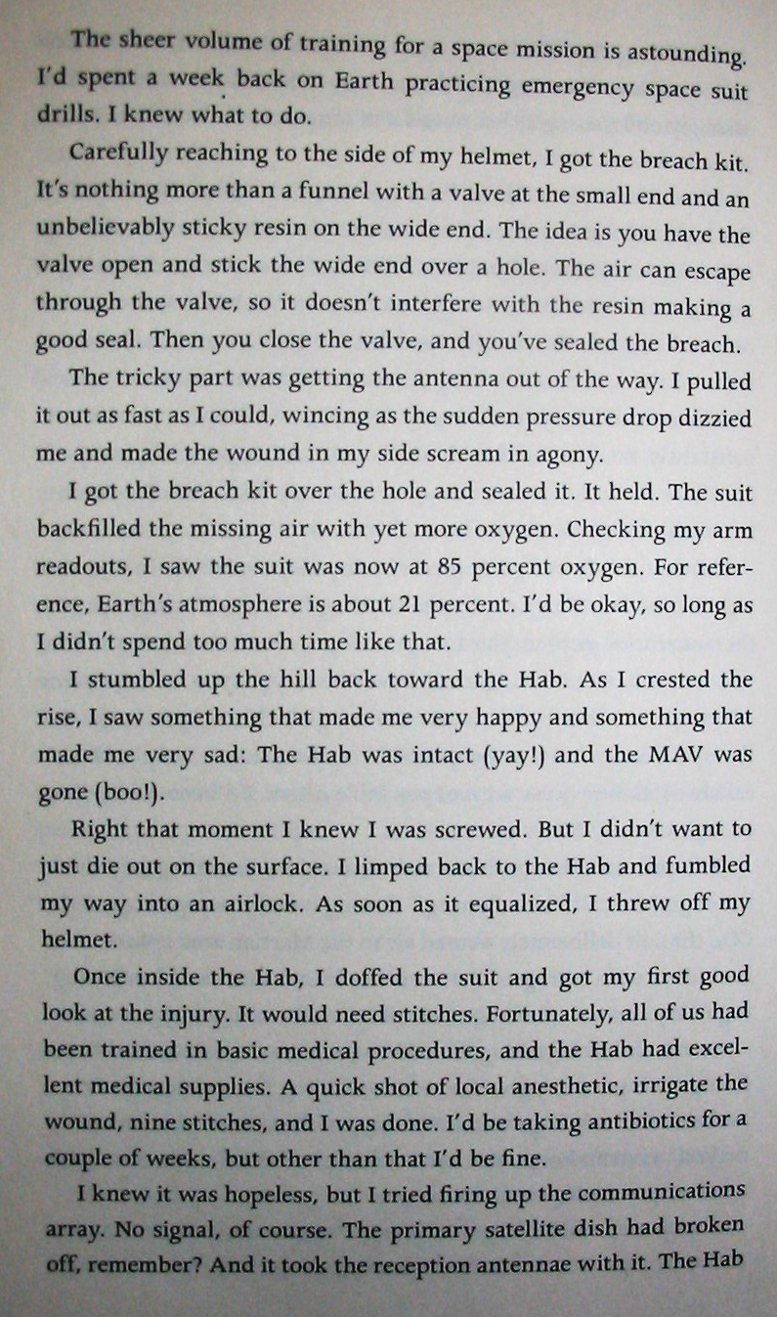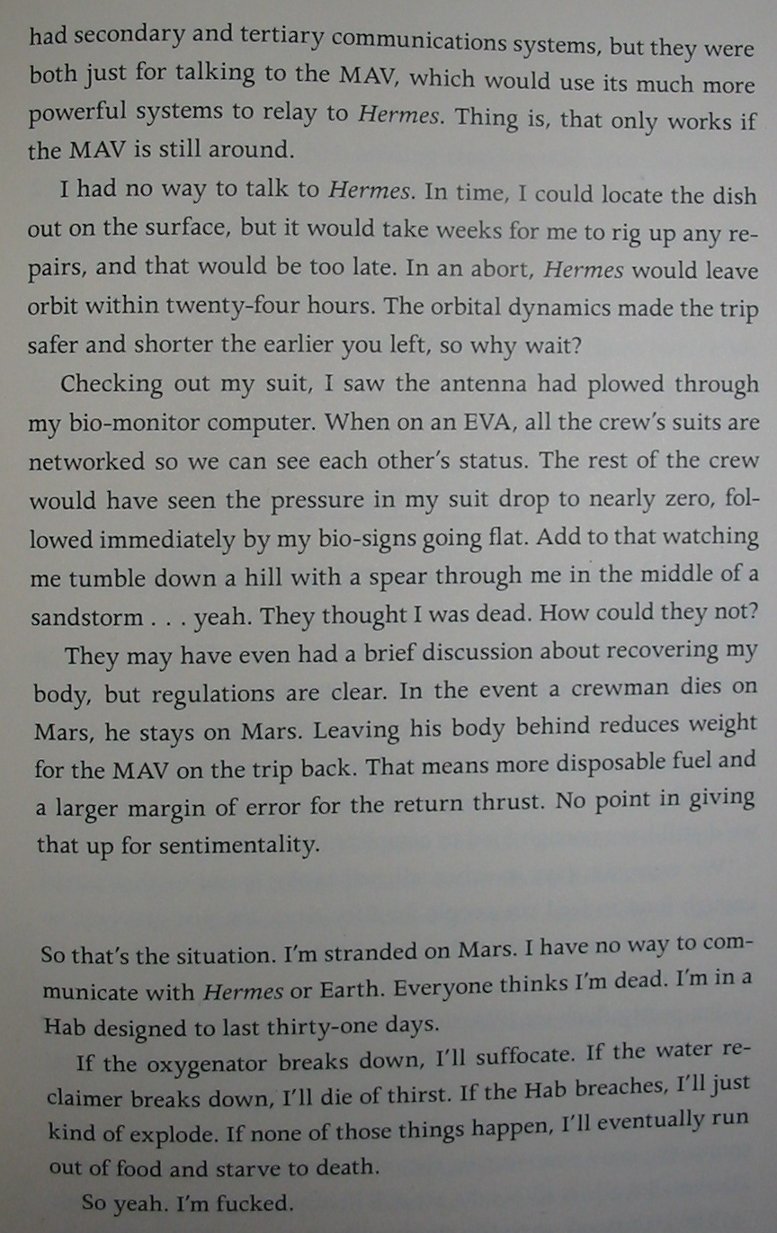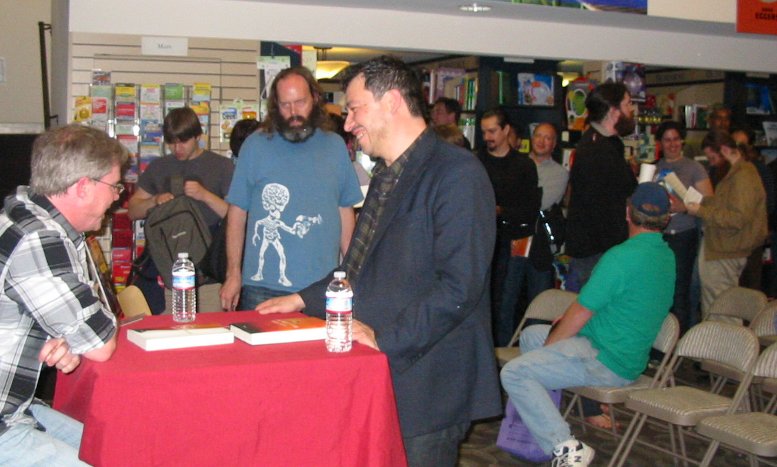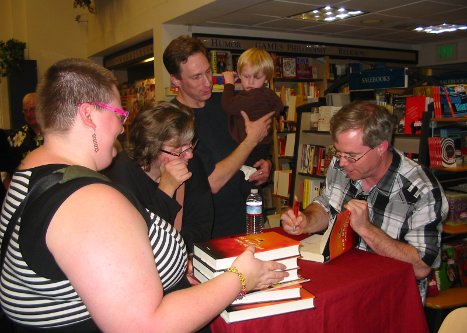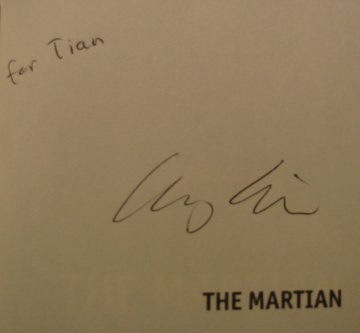I worked in the same lab as Andy
Weir for a few years in the late '90s. At the time we were both
programmers. He's one of those people that's easy to stay on the
email list of, and it often gives me another interesting reading
experience. A couple of weeks ago he posted that his first
mainstream novel would be released into circulation early this
week, with a kickoff author reading here in Mountain View this
evening. I put it on my calendar.
The bookstore was nicely filling
with people there for the event.
This picture was taken about when
the event started. They had just urged everybody to sit down. By
the time it was over a lot more people had trickled in and the
place was SRO.
The event was billed as a discussion
between Andy and Dr. Pascal Lee, a Planetary Scientist at
the SETI Institute. It worked that way to. Lee got Andy to talk
about his background. The guy explained that he had been writing
for as long as he could remember, mostly self published stuff on
the web. This was his third novel, but it was the first one that
was good enough to generate sales. The first one he'd written back
before there was any internet, so probably his mother has the only
copy. He hopes she won't be cruel enough to let anyone else see
it. The second one is findable on the internet, but he doesn't
recommend that experience to anyone. Andy still works as a
programmer, so writing is an "as time allows" kind of thing.
The Martian took him three years to
write. He sort of had the plot at the beginning, but the story
didn't exactly unfold as planned. It started as a long series of
emails to his mailing list, one chapter at a time as he wrote
them. Then when it was finished someone begged him to make it into
a document they could download and read. He did that. Then
somebody complained that they couldn't read it on their kindle. He
got it into the Amazon shop as a download for 99 cents, the lowest
possible price. Then it started getting a good amount of buzz.
Once it hit Amazon's top ten of the day the sales started swelling
a lot. Somebody in the book business read and liked it. The guy
volunteered to be Andy's agent. Soon after he had a book deal at
Random House, and a few days later another deal on the movie
rights.
About this time Dr. Lee took the
stage to fill us in on the reality of human travel to Mars. There
are currently two projects that might have some possibility of
success. One of them is a Dutch reality television project, which
is all about getting footage of real humans on Mars. Apparently
there are millions of people that signed up for the project, about
1500 of whom made the first star search cut. The deal hinges on
advertising money and stuff like that. It's still somewhat
speculative. The other project is the brainchild of the guy who
was the first space tourist. He's trying to organize a human flyby
of Mars using a spaceship with internal dimensions of about 30
cubic meters. They have a route planned that will use fuel to kick
off the flight, but the plan is to use a slingshot orbit to get
back via Venus so they don't have to take that much fuel along for
the return journey. They think that mission will be out there
about 510 days if all goes well. To do any better than that will
require a technology breakthrough in propulsion systems like "an
ion drive".
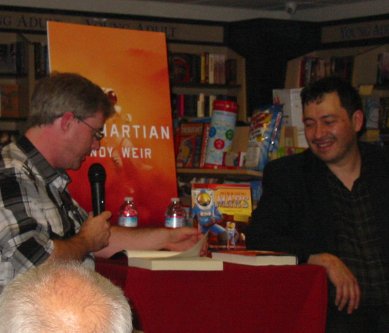
Then Andy did a reading. He started
on page four, where Mark Watney has just been speared by an
antenna that blew up in a sand storm.
To find out what happened after that
get the book! You're only missing about 386 pages of the story.
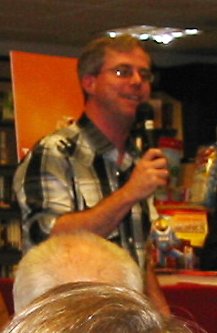
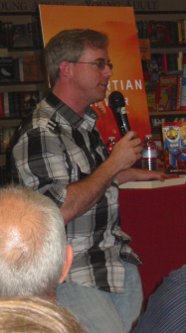
Then he answered some questions from
the bookstore audience.
The Egg,
his most famous and popular story before this one, was a
thousand words that took him about an hour to write. He'd put it
on his website and it had taken on a life of its own. Now it has
been translated into 35 languages. He'd find out about new
translations when the authors emailed them to him. He hadn't
created a new voice in his head for Mark Watney, because the guy's
log writing style was similar enough to Andys that he just did it.
After he "finished" the book he'd fixed a number of problems
pointed out to him by readers, so the published version benefited
from that. One of the books that had inspired him was Robert A.
Heinlein's Red Planet.
Andy is working on another novel, but he's not ready to talk about
it yet. He doesn't like to fly, so likely this reading is it for
the book tour. His understanding is that author tours do a lot
better after the second or third novel, when an author has
developed a following.
Then it was time for us to line up
to get our copies of the book autographed. There was plenty
of interest.

